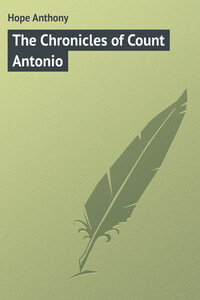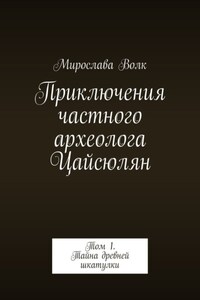CHAPTER I
OF THE MIDDLE TEMPLE, ESQUIRE
It was a dark, dank, drizzly morning in March. A dull mist filled all the air, and the rain drifted in a thin sheet across the garden of the Middle Temple. Everything looked a dull drab. Certainly it was a beastly morning. Moreover – to add to its offences – it was Monday morning. Arthur Lisle had always hated Monday mornings; through childhood, school, and university they had been his inveterate enemies – with their narrow rigorous insistence on a return to work, with the end they put to freedom, to leisure, to excursions in the body or in the spirit. And they were worse now, since the work was worse, in that it was not real work at all; it was only waiting for work, or at best a tedious and weary preparation for work which did not come and (for all that he could see) never would come. There was no reason why it ever should. Even genius might starve unnoticed at the Bar, and he was no genius. Even interest might fail to help a man, and interest he had none. Standing with his hands in the pockets, listlessly staring out of the window of his cell of a room, unable to make up his mind how to employ himself, he actually cursed his means of subsistence – the hundred and fifty pounds a year which had led him into the fatal ambition of being called to the Bar. "But for that it would have been impossible for me to be such an ass," he reflected gloomily, as he pushed back his thick reddish-brown hair from his forehead and puckered the thin sensitive lines of his mouth into a childish pout.
Henry the clerk (of whom Mr. Arthur Lisle owned an undivided fourth share) came into the room, carrying a bundle of papers tied with red tape. Turning round on the opening of the door, Arthur suddenly fell prey to an emotion of extraordinary strength and complexity; amazement, joy, excitement, fear, all in their highest expression, struggled for mastery over him. Had he got a Brief?
"Mr. Norton Ward says, will you be kind enough to protect him in Court III, in case he's on in the Court of Appeal? It's a very simple matter, he says; it's the Divisional Court, sir, third in the list." Henry put the papers on the table and went out, quite disregardful of the storm of emotion which he had aroused. Though keenly interested in the fortunes of his employers, he did not study their temperaments.
It had happened, the thing that Arthur knew he ought always to hope for, the thing that in fact he had always dreaded. He had not got a brief; he had to "hold" one – to hold one for somebody else, and that at short notice – "unhouseled, disappointed, unanealed!" That is to say, with no time to make ready for the fearful ordeal. It was nearly ten o'clock, at half-past he must be in court; at any moment after that the case might come on, its two predecessors having crumpled up, as cases constantly did in the Divisional Court. The fell terrors of nervousness beset him, so that he was almost sick. He dashed at the brief fiercely, but his fingers trembled so that he could hardly untie the tape. Still, he managed a hurried run through the papers and got the point into his head.
Lance and Pretyman, jj., took their seats punctually at ten-thirty. Arthur Lisle, who felt much interest in judges as human beings and would often spend his time in court studying them rather than the law they administered, was glad to see Lance there, but feared Pretyman to the bottom of his heart. Lance was a gentle man, of courtly manners and a tired urbanity, but Pretyman was gruff, abrupt, terribly anxious about saving public time, and therefore always cutting into a man's argument with the Stand-and-deliver of a question to which, in Pretyman's opinion, there was no answer. It would be an awful thing if Pretyman set on him like that! Because then he might be incapable of speech, although he knew that he was in the right. And he believed that his case was good. "All the worse then, if you lose it!" said a mocking voice within him.
Henry had taken him over to the court and had done everything possible for him – had told the solicitor who had briefed Norton Ward how the matter stood and how very safe he would be in Mr. Lisle's hands if it came to that, had given his name to the usher so that the usher could, if necessary, give it to the Bench, and had even introduced him to Mr. O'Sullivan, who was on the other side, a tall and burly Irishman, famous for defending criminals, but not credited with knowing much law.
As the first two cases proceeded, Arthur read his brief again and again, and, when he was not doing that, he read the reported case which (in the opinion of the pupil who had got up Norton Ward's brief and had made a note of it for him) was decisive in his favour. All the while he was praying that the first two cases might last a long time. They did not. Pretyman, j., smashed the pair of them in three-quarters of an hour. "Brown and Green" called the usher, and O'Sullivan was on his legs – and there was no sign of Norton Ward. Henry nodded to Arthur and left the court; he was going to see how matters stood in the Court of Appeal.














